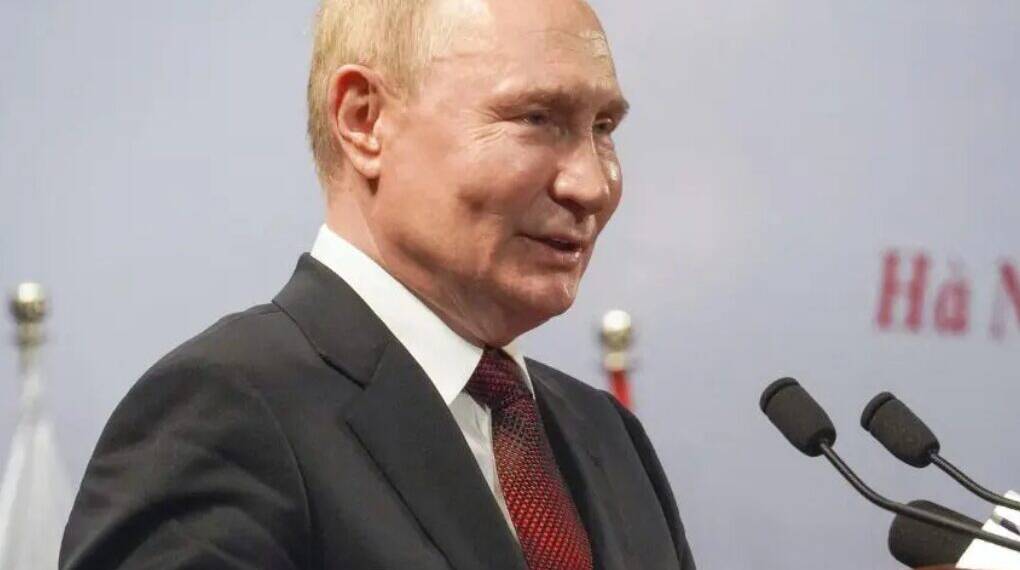In one of the most bizarre yet revealing aspects of global politics, Russian President Vladimir Putin has once again made headlines—not only for his role in shaping geopolitics but also for his unusual security practices.
As he arrives in Alaska to meet U.S. President Donald Trump for critical peace talks on the Russia-Ukraine war, reports have resurfaced about Putin’s long-standing practice of traveling with his own “poop suitcase.”
According to investigative reports from French publication Paris Match and corroborated by multiple journalists, including former BBC correspondent Farida Rustamova, members of Putin’s Federal Protection Service (FPS) are tasked with collecting and securing the president’s human waste during foreign trips.
The excrement is allegedly stored in sealed bags and transported back to Russia inside a dedicated briefcase.
Why Putin Takes His Poop Home?
The practice, bizarre as it sounds, is not entirely without reason. Analysts suggest it is a counter-intelligence measure aimed at preventing foreign agencies from acquiring biological material that could reveal sensitive information about Putin’s health. Urine and stool samples could provide insight into medical conditions, genetic vulnerabilities, or even the effects of potential treatments.
This practice, reportedly in place since the early 2000s, has been documented during several of Putin’s foreign visits, including his 2017 trip to France and an official visit to Vienna, where he used a private portable toilet. Kremlin insiders say this measure reflects not only Putin’s obsession with secrecy but also his growing paranoia about Western intelligence agencies exploiting any weakness.
Health Rumors Continue to Swirl
Putin’s health has been a subject of international speculation for years, with rumors of Parkinson’s disease, cancer, and other conditions circulating widely. These rumors intensified after a 2023 incident where he was seen twitching in his chair during a meeting with Belarusian President Alexander Lukashenko. Earlier, unverified reports suggested he had suffered a fall down a staircase and allegedly soiled himself—a claim quickly denied by Kremlin officials.
During a press conference in Kazakhstan last year, Putin appeared visibly restless, sparking concerns among medical experts. Dr. Bob Berookhim, a neurologist, suggested his sudden leg movements could indicate a neurological disorder such as Parkinson’s. Most recently, ahead of his Alaska visit, he was seen limping on the tarmac—an observation that fueled speculation about his physical condition.
Despite repeated denials by Russian authorities, the strict management of Putin’s biological waste has reinforced the perception that the Kremlin is hiding something significant about its leader’s health.
The High-Stakes Alaska Summit
Against this backdrop of secrecy and health speculation, Putin’s meeting with Donald Trump in Alaska is drawing global attention. The summit is framed as a step toward brokering peace in Ukraine, though critics argue that both leaders have their own agendas.
Trump, who has repeatedly claimed he could end the Russia-Ukraine war “in 24 hours,” is attempting to position himself as a peacemaker on the world stage. Ahead of the talks, he expressed interest in facilitating a direct meeting between Putin and Ukrainian President Volodymyr Zelensky. Speaking to reporters, Trump said:
“I would like to do it almost immediately, and we’ll have a quick second meeting between President Putin and President Zelenskyy, and myself, if they’d like to have me there.”
For Putin, the summit provides an opportunity to project strength abroad, even as domestic whispers about his frailty persist. Russian media have framed the trip as a show of resilience, emphasizing that the president continues to engage in critical diplomacy despite alleged health issues.
Public Reactions and Protests
The Alaska meeting has not gone unnoticed by the public. Pro-Ukraine protests erupted outside the summit venue, with demonstrators warning Trump not to appease the Kremlin. Activists carried banners urging Western leaders to maintain pressure on Moscow until Russian forces withdraw completely from Ukraine.
Meanwhile, Western analysts remain cautious. Some see Trump’s willingness to meet Putin as a potential breakthrough for peace, while others fear it may provide Moscow with an opportunity to exploit divisions within the West.
A Meeting of Paranoia and Power
The combination of Putin’s extreme security measures, persistent health rumors, and the political stakes of the Alaska summit paints a striking picture of modern geopolitics. A leader who reportedly cannot travel without taking his own waste back home is also one of the most powerful figures shaping the course of the war in Ukraine.
Whether the meeting with Trump produces real progress or becomes another stage for posturing remains to be seen. But one thing is clear: Putin’s paranoia, secrecy, and the lengths he goes to protect his image have become inseparable from his political identity.
As the world watches Alaska, the image of a Russian president clutching not just nuclear codes but also a suitcase of his own excrement is a metaphor for the strange intersection of fear, secrecy, and power that defines his rule.








